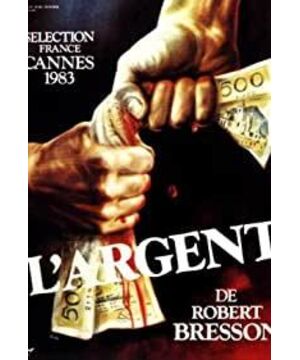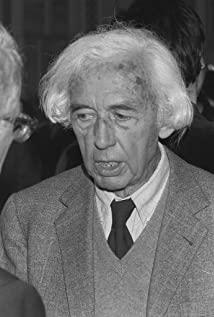He is not a common man like me, so he can't be ranked together. If he ranks first, others can only be ranked seventh and eighth
.
His culmination work, [Money], truly thoroughly implemented his film theory, and was a real masterpiece. My evaluation of him
is four words: "Big X is invisible"-the highest state of X pretending.
1) The types of other movies/directors that can be seen in
[Money] First of all, [Money] is a genre movie. But it is the ultimate in genre. You can see the plot, ethics, aesthetics, preaching, religion, horror, suspense, etc. from it.
2) [Money] The ultimate deconstruction of the film itself.
1)
Quentin Tarantino, a postmodern master of narrative, is a master of deconstruction ([Pulp Fiction] is the heavy evidence that he is a top master). You can understand postmodernism as subversion. [Pulp Fiction] There are five chapters (?), the protagonist of the previous chapter will be inexplicably killed in another chapter at any time, like cannon fodder. This is the deconstruction of the traditional narrative, which is beyond your expectation. I haven't seen the children's shoes of [Pulp Fiction], so did Xingxing that week.
Bresson's narrative can be described as the ultimate deconstructive narrative of postmodern*postmodern, retrograde. In the story of "Money", counterfeit bills were originally a clue, (you can go to various film reviews, thinking that this film is better to be renamed [the murder caused by a wad of counterfeit bills]) but this clue is not a clue at all. It's not even an introduction, it doesn't matter if there is a counterfeit bill or not, it's just a prop with no actual meaning. The clue (as it is called) is constantly changing, and the counterfeit bill is only the first thread. These clues are so parallel and orderly linked together, not for the purpose of creating a montage. They have no meaning, only function: function is to act as a clue.
[Money] The narrative technique in the middle part is also at its peak. It's like a retired old man slapped his wife with only one intention to wave his hand, and then the camera cuts to the hand of the old woman holding the bowl, and the water spilled out; the piano talks about halfway. , The water cup on the side of the piano fell to the ground; the protagonist raised the axe, and then the shaking lamp.
2) In terms of
lens, the battle of film lens has sharpened to two extremes: long lens and montage.
With Ozu Yasujiro as the banner, Angelopoulos is the ultimate long-lens school. His shots are poetic, slow and emotional. Now it can be said that a good long lens is enough to support half a movie. Typical examples are [Schindler's List] and [Blade Runner]. The long shot of the former shows a little girl in a red dress appearing in a black and white scene of the German slaughter of Jews. It is a metaphor for the preciousness of life. I don’t know how many innocent boys and girls and the tears of uncles and aunts have been earned; the latter has some attempts to pretend to be X. A white unicorn broke into the male protagonist's sleeping dream. No one knows what it means, but it feels better than anything else. Basically, it can be qualitatively like this: literary films should be shot like this, haha.
On the other hand, the montage lens school represented by Hollywood pursues the rapid cutting of film to switch lenses, which is not unsuitable, and it is rare in line with its pursuit of commercial operation. The dazzling feeling of this fast switching of the lens is easy to cover a huge amount of information in a very short period of time. A simple example is to give a shot of a person's hand stretching, and then immediately switch to a shot of a tree full of apples, which means that the person stretches out his hand to pick the apples. Let the audience's own subconscious mind fill in the connection between the two endpoints. This is montage (note that the Hollywood commercial film model is only montage on the lens, while metaphor montage pays more attention to ideology, which usually appears more in literary and artistic films: very Simple, the lens is easy to handle, and ideology is a higher level of technical work). The most dazzling montage shots are undoubtedly the [two big smoke guns] and [the city of God]. The latter’s plot is plagiarized from [Pulp Fiction], and the lens is based on [two big smoke guns]. The plot is purely copied, but the lens is blue and blue (exciting clip: the beginning of the chicken, dazzling; the middle disco stroboscopic flash, the world Wushuang).
Here in [Money], you can't see long shots, nor can you see montages. Bresson wanted this effect. He is simply the ultimate form of minimalism. He compressed the poetry and sense of substitution contained in the long lens, as well as the coldness and tension of montage, into his motionless fixed-position frame, creating a picture. This kind of indifferent third person perception that is not from the perspective of God. This is a desperate, sterile, cold, and absolute lens that wipes out any vitality.
3) The actors
It is said that all extras are invited in this film. This is not pretending to be X, this is the ultimate of pretending to be X. You can go through Bresson's talk about movies, his philosophy is this, he believes that role players should not be acting, any description is just whitewashing. In the movie [Money], he thinks the extras are too good at acting, and there are many scenes that you can tell that it is the director's request. The action is extremely blunt. In Bresson's view, the role of the role is only to express the plot, like a wrung out towel. And it is precisely this stiff effect, it is the most perfect footnote about this movie. At the end of the film, Bresson loosened his restrictions on the actors’ performance. The transition from extreme stiffness to stiffness produced a huge explosive force. This kind of cohesive explosion was not about hiring ten Nicolas Cages to act. All you can have.
I have always believed that the best acting in all movies in history is the little boy Alysandro in Angelopoulos [Landscape in the Fog]. After watching [Money], I discovered that the honor of this best actor should be awarded to [Money] The dog in 】, its acting is naturally not pretentious, and can directly and perfectly exert the director's intentions to the extreme every time.
4)
After all the clues are laid out and explained in terms of ideology, at the second half of the movie, the real ideology part, the attentive audience will find that the direction of the story has been swaying repeatedly. Bresson used too many imaginary foreshadowings. In the last second, you may think that the ending is a good full moon, and the next second you may think that the fish is dead and the net is broken. What he is playing here is a collection of genres. There are many elements of horror and suspense. Kubriklas von Trier and David Lynch all stand aside. In terms of ideology, this is precisely about the protagonist’s psychological struggle and human struggle. He is in a dilemma between good and evil, like a float in the water, ups and downs. With this paragraph, [Money] is no longer an institutional ethics film discussing the severity of penalties for counterfeit money. [Money] is an accusation against the entire society.
When I first watched it, I felt that the action of the film was too much, the shots were too bad, the narration was too scattered, and the music was completely absent. Thirty minutes later, I began to suspect that the director did it deliberately, and I started to admire it most of the time. I guess Bresson even thinks that even technology is superfluous and destroys the atmosphere. Obviously, the acting dog was also found casually, but he was so entertaining and empathetic. The dog's entry into the play and the actors' non-entertainment contrasted with each other, where his barking and not barking were both an illusion. All the criteria for measuring the quality of a movie are not worth mentioning here, such as acting, narrative, shot switching, scene scheduling, and even the flow of clues.
And the biggest significance of this film is that a demanding, knowledgeable, and perfectionist film critic can finally justify Fellini’s [eight and a half] to a 4-star level. At the same time, he feels that Chie Slovsky's [Ten Commandments] is finally no longer a lonely extinction in the history of film.
Because of Bresson’s [money], this is no longer a bluff and cheap empty talk:
big, forcing, intangible .
Please remember to encourage each other.
View more about L'Argent reviews







